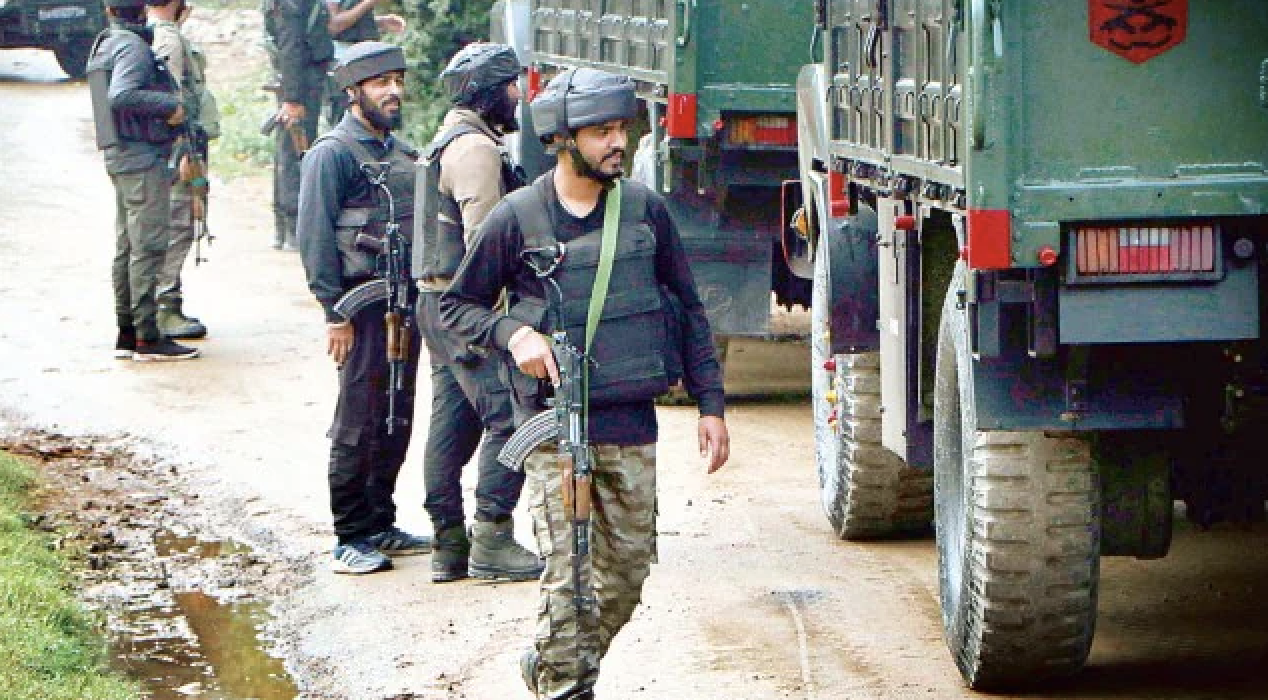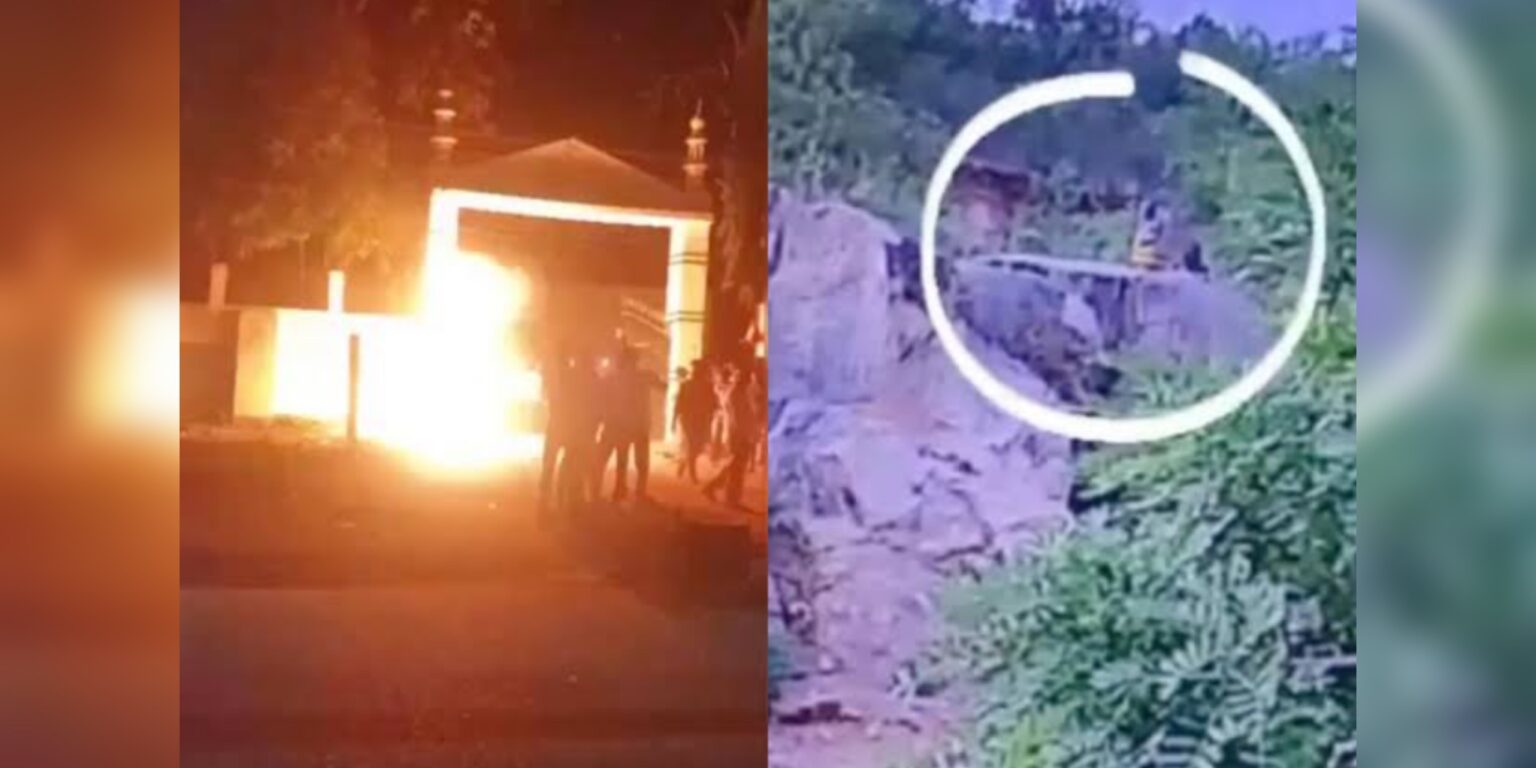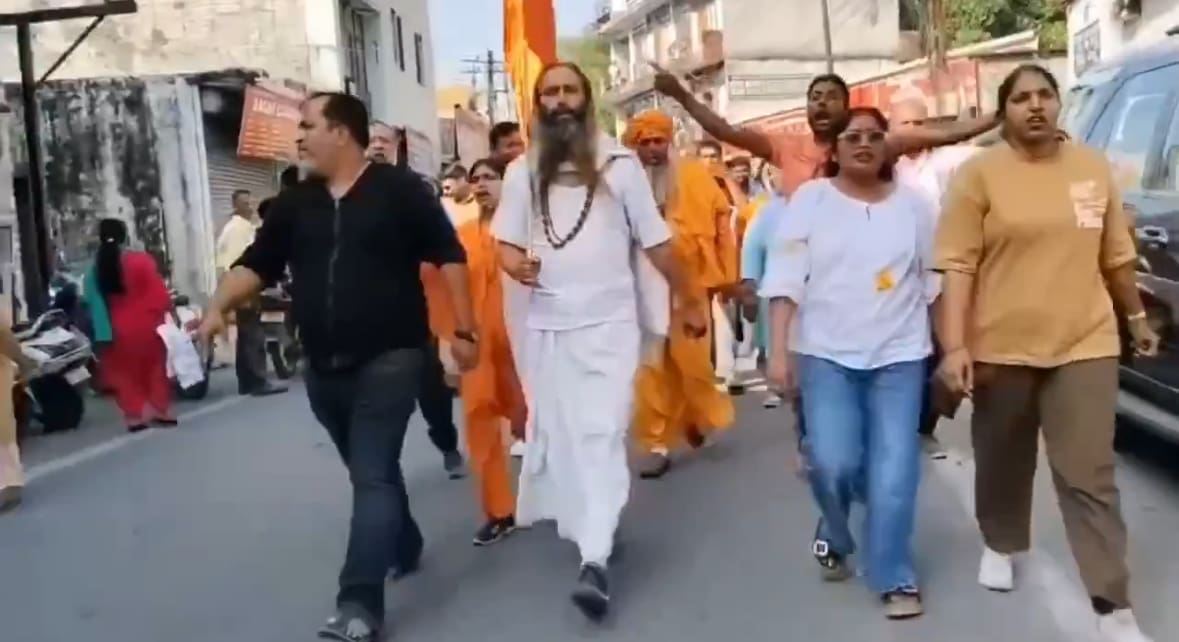
By SUJIT NATH
Hindutva’s connection to Bengal is something that neither the Bharatiya Janata Party nor the Rashtriya Swayamsevak Sangh shies away from reiterating, and that has also been evident during the fierce campaigning for the ongoing assembly polls, the votes for which will be counted on May 2. RSS founder KB Hedgewar’s stint as a medical student in Kolkata was greatly influenced by Bengal’s firebrand nationalists. His successor MS Golwalkar’s time at the Ramakrishna Mission was a factor in his understanding of Hindu nationalism as one characterised by the ideas of service and renunciation. It was on Hedgewar and VD Savarkar’s advice that Syama Prasad Mukherjee became the president of the Hindu Mahasabha after joining the organisation in 1939, and later went on to form the Bharatiya Jana Sangha (BJS), the BJP’s predecessor.
However, from 1952, when the BJS contested on six of Bengal’s 36 seats and won two with a vote share of 5.59%, to 2019, when the BJP fought on 42 parliamentary seats and won 18 with a vote share of 40%, the politics of Hindutva in the state has come a long way. Throughout this, the RSS has remained a constant, albeit changing form, over the decades.
The RSS has been present in Bengal since 1939, but it failed to grow in the decades of the Left rule. The Sangh’s headquarters at the nondescript Keshav Bhavan in North Kolkata’s 9A, Avedananda Road (Beadon Street) remained shrouded in obscurity.
That changed with the rise of identity politics in 2011 after Mamata Banerjee’s victory, and especially after the 2014 victory of Narendra Modi at the Centre.
However, even after 2014, the growing media glare has not altered much the manner in which the RSS functions and it continues to run its show the way it always has, away from the public eye. The Sangh has carefully draped its saffron veil over all its activities, be it organising workshops or top RSS functionaries addressing regular seminars at Salt Lake Sector V, Bengal’s IT hub. Even though the practice is to organise workshops spanning over 15 to 20 days as part of ‘karyakarta nirmaan’, an initiation process to train new cadres, such sessions have hardly ever drawn any attention.
The key for the BJP and allied groups to counter the Trinamool Congress’s organisation on the ground ahead of the ongoing Bengal elections was the RSS network of workers with the experience of “jan sampark” (people’s connect), led by a team of silent Sangh activists including Dilip Ghosh, Arvind Menon, Shivprakash, Sunil Deodhar, and Debasree Chaudhuri. They worked closely with Kailash Vijayvargiya, who was appointed the observer for the party in Bengal, replacing Sidharth Nath Singh.
These are some of the BJP leaders with an RSS background and their contribution in Bengal’s politics.
Dilip Ghosh
Known for his controversial statements, including once referring to himself as “Gabbar” in an encrypted public speech, RSS worker and BJP’s ‘Naru’, Dilip Ghosh is undeniably giving some tense moments to the state’s ruling Trinamool Congress.
Born on August 1, 1964, Ghosh, a relatively new entrant in politics, who joined the BJP in 2014, has proved himself a nearly indispensable soldier of the saffron brigade in Bengal.
In 2015, he became the BJP’s Bengal president and his clout in the party could be gauged from the fact that he was reappointed to the post on January 16, 2020, by the central leadership.
After he became the state party president in 2015, the BJP has seen a meteoric rise under his leadership. In the 2019 Lok Sabha polls, BJP vote share went up to 42% from 17% in 2014.
In 1984, Ghosh formally joined the Rashtriya Swayamsevak Sangh as a pracharak. He was incharge of the RSS in the Andaman and Nicobar Islands and worked as an assistant to former RSS chief KS Sudarshan.
Ghosh was 20 years old when he left home and started working for the RSS. At the time, veteran Sangh leader Keshav Dixit used to visit Ghosh’s Gopiballavpur home in West Medinipur district. Dilip Ghosh’s father Bholanath Ghosh was a social worker and he along with his mother Pushpalata Ghosh allowed him to work for the RSS in 1984.
Later, the BJP felt that Dilip Ghosh should work for the party in Bengal and he began engaging at the ground level.
His social work as an RSS activist helped him create his own space in Bengal’s politics and he emerged as one of the most influential politicians in the state.
Ghosh has said that the RSS’s training has helped him a lot mentally and physically to lead the BJP in the state towards a significant position.
In the 2016 assembly polls, Ghosh won from the Kharagpur Sadar constituency in West Medinipur district by defeating his rival Gyan Singh Sohanpal, a Congress candidate. It was a significant victory because Sohanpal had won the seat seven times in a row from 1982 to 2011.
Since then, Ghosh has toiled hard to bring the BJP on track to fight the TMC. In 2019, he won the Medinipur Lok Sabha constituency in the general elections by a margin of 88,952 votes and a vote share of 48.62%, defeating TMC heavyweight and former Congress leader Manas Bhunia.
Kailash Vijayvargiya
An RSS man from Indore in Madhya Pradesh, Kailash Vijayvargiya has played a pivotal role in strengthening the BJP in Bengal since 2015 when opposition parties were struggling to survive against a TMC wave across the state.
He is currently serving as a national general secretary of the Bharatiya Janata Party. He successfully led the BJP’s campaign during the Haryana assembly election in 2014. In June 2015, he was appointed a national general secretary and incharge of West Bengal.
Since then, he along with Dilip Ghosh have worked hard to project the BJP as an alternative to the TMC. Their efforts paid off as the BJP under their leadership managed to secure 18 Lok Sabha seats out of 42 in 2019.
He is the key man behind strengthening the party at the booth level in Bengal and is believed to be the brains behind the poaching of Mukul Roy from the TMC. Vijayvargiya began his political voyage in 1975, when he joined the Indore Chapter of the Bharatiya Vidyarthi Parishad. As a student he was a very keen social activist and participated in social welfare activities and campaigns.
In 1983 he was elected a councillor in the municipal corporation elections for Indore. He was elected to the Madhya Pradesh assembly in 1990, 1993, 1998, 2003, 2008, and 2013.
Arvind Menon
On October 3, 2018, Amit Shah appointed national executive member Arvind Menon as the BJP’s Bengal co-minder.
A former RSS pracharak is touted as a “master strategist” in drawing the Hindu vote share in rural Bengal.
Menon had played a key role in the 2017 Gujarat assembly elections. Once, he described himself as a “postcard” and said that he has pledged to follow the address which his party will write on it.
Menon was born in Guruvayur, a pilgrimage town in Kerala. He speaks fluent Hindi and Bengali. He has been working for the BJP in Bengal since 2018 and is believed to be close to RSS chief Mohan Bhagwat.
It is also believed that he is the key man behind the BJP’s strong presence in Madhya Pradesh. Such was his performance that the party’s national leadership made him incharge of several departments at the party headquarters.
In the 2019 Lok Sabha polls, among other party leaders, Menon’s role cannot be ruled out in swinging the mood of the masses towards the BJP, mainly among the Hindus, BJP insiders say.
Menon is a silent worker and usually ignores media attention. He prefers to meet people on the streets and has worked extensively to strengthen more than 1 lakh booths in the assembly polls in Bengal.
Due to his hard work in restructuring the party at the ground level, mainly in rural Bengal, the BJP has emerged as a strong force against the TMC in Bengal.
Shivprakash
Shivprakash, who worked closely with Amit Shah in the 2014 Lok Sabha elections, has been given the responsibility of organisational affairs primarily in West Bengal and also in western Uttar Pradesh and Uttarakhand.
In 2015, he was given the responsibility of Bengal, and since then, his primary job has been to ensure better coordination among party cadres and win the confidence of Bengal’s people. Then, he asked his cadres, most of them from an RSS background, to prepare for the 2019 Lok Sabha and 2021 assembly polls in the state.
His extensive work at the grassroots level helped the BJP improve its vote share in Bengal from 4.1% in the 2011 assembly elections to nearly 11% in 2016. Subsequently, the party improved its performance in the panchayat elections and increased its vote share from 17.2% in the 2014 general elections to over 40% in 2019.
Once speaking to News18, he had said, “My biggest challenge was to bring a ‘parivartan’ (change) in Bengal because it became a concern as far as national security (due to illegal immigrants) is concerned.”
He has always maintained that the BJP didn’t fight the elections on religious lines in Bengal and claimed that Bengalis gravitated towards PM Modi because of his ‘Sonar Bangla’ vision.
Sunil Deodhar
Another silent warrior and low-profile former RSS pracharak is Sunil Deodhar, who is known for his ideological commitment and excellent management skills.
Deodhar is a national secretary of the BJP and he came into the limelight after he was assigned to look after Narendra Modi’s Varanasi constituency in the 2014 Lok Sabha elections. He was also the man behind the BJP’s huge win in Tripura in 2018.
Soon after securing Tripura from the Left Front, Amit Shah assigned Deodhar the responsibility of Bengal in the 2019 Lok Sabha polls. He was assigned the task of supervising four Kolkata seats — Dum Dum, Kolkata North, Kolkata South and Jadavpur.
Impressed with his excellent organisational skills, in December 2020, Shah appointed him to look after West Midnapore and Hooghly districts in the assembly polls.
To assess the organisational strength and weakness at the booth level – the BJP had divided Bengal in five zones and appointed five central leaders to get an ‘unbiased report’ on their present position in the state. One of these central leaders was Sunil Deodhar.
“The biggest challenge for me in Bengal was streamlining the organisation unlike Tripura where we managed to strengthen our base. The booth-level and mandal-level functioning was absent in Bengal. Ultimately the election is fought at the booth level. We took the challenge and over months we managed to streamline this and we got a good response,” Deodhar had said in an interview to News18.
Debasree Chaudhuri
When Debasree Chaudhuri was made a minister of state in Prime Minister Narendra Modi’s cabinet in 2019, it came as a surprise to many, given the fact that she was not a prominent leader in state politics.
However, many in Bengal who have been with the BJP for decades can only describe Debasree and her family’s contribution at the grassroots with a strong RSS imprint that helped the saffron brigade increase its vote share in the border areas of West Bengal.
For her hard work, she was rewarded and made a general secretary of the party’s Bengal unit and later she was made an MoS in the ministry of women and child development in PM Modi’s cabinet in 2019.
Her father, Debi Das Chaudhuri, was a high school teacher and president of the Bharatiya Jana Sangh (BJS) from 1967 to 1980 in Balurghat in undivided Dinajpur district (later it was separated into South and North Dinajpur). Before the BJP’s birth, the Bharatiya Jana Sangh was the political arm of the RSS.
During his stint as the president, Emergency was declared in India in 1975 and several leaders of the BJS were arrested. Though it was difficult for these leaders to work during Congress and Left rule in Bengal, Debasree and her family toiled to serve the party.
Born on January 31, 1971, Debasree had at times recalled the struggles the family faced. “There was struggle and crisis but we all managed to overcome them because of my mother Ratna. She was the force behind all of us giving us inspiration to move forward. I have one sister and two brothers and the common link among us is service to the nation. All of us are attached either to the BJP or Sangh,” she had said.
While studying at Burdwan University she became an active member of the ABVP and, in 2001, she joined the state BJP.
Since then she has moved forward with the baton of her father, who died in 2010, to serve the BJP.
Debasree did her postgraduation from Burdwan University and briefly worked for a private company in Kolkata from 1995 to 1996. She contested the 2014 Lok Sabha elections from the Bardhaman-Durgapur seat of West Bengal but was defeated by a TMC candidate. In the 2019 Lok Sabha polls, she won the Raiganj seat by defeating sitting CPI (M) lawmaker Md Salim by 3,28,552 votes and TMC’s Kanailal Agarwal by 60,593 votes.
This story was first appeared on news18.com






